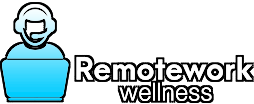
Local small business owners face a daily marketing challenge: getting noticed in a crowded feed and a busy neighborhood without sounding like everyone else. When promotions blur together, marketing creativity becomes the difference between being briefly seen and being remembered, strengthening brand differentiation in ways discounts can’t sustain. The most effective local business marketing isn’t louder; it uses thoughtful customer engagement strategies that invite genuine audience relationship building over time. Creativity keeps a brand relevant, emotionally resonant, and easier to choose again.
Understanding Creative Marketing Principles
Creative marketing is not random “cute ideas.” It is using novelty, smart improvements, and feeling to make your message easier to notice and remember. In plain terms, creativity in marketing means offering valuable, unique solutions to real customer problems.
This matters because attention is scarce, and sameness is expensive. Novelty helps your posts, signs, and offers earn a second look, while ongoing innovation keeps you from feeling outdated. Emotion turns a one time buyer into someone who feels connected because relationships with brands can feel personal.
Think of a neighborhood cafe. A playful “mystery pastry” week gets people curious, a new ordering shortcut reduces friction, and a story about a family recipe builds warmth. With these principles clear, a simple workflow can turn ideas into consistent campaigns.
Idea → Story → Test → Launch → Learn
Creative work sticks when it has a cadence, not a burst of inspiration. This lightweight cycle helps you generate fresh angles, turn them into simple stories, and ship small experiments that earn attention without draining your team.
| Stage | Action | Goal |
| Notice | Collect questions, complaints, and “why us?” moments all week | Find real problems worth creative attention |
| Shape | Pick one theme; write a one sentence story promise | Create a clear narrative spine |
| Sketch | Draft 3 hooks, 1 visual idea, 1 offer, 1 call to action | Build options fast, without overthinking |
| Test | Run a small version in one channel for 48 to 72 hours | Learn what earns replies, clicks, or foot traffic |
| Expand | Repackage the winner across email, signage, and social | Make one idea do more work |
| Review | Log results, customer quotes, and next improvement | Turn outcomes into next week’s inputs |
As you repeat the loop, insights from Review sharpen what you Notice, and testing protects you from betting on guesses. Over time, your best themes become recognizable, while your execution stays fresh.
Try 10 Fresh Engagement Plays—Plus a Fast Visual-Prototyping Method
When you run marketing on repeat, audiences start to scroll past, even when your offer is solid. Use these plays to keep your “Idea → Story → Test → Launch → Learn” loop moving, so you’re refreshing how you communicate without reinventing your business every week.
- Run a two-hook “micro A/B” test before you design anything: Write two versions of the first line for the same post (e.g., “Stop wasting your lunch break” vs. “Make lunch feel like a reset”), then publish each on different days at the same time. Track one simple signal for 48 hours, saves, replies, link clicks, and keep the winner for your next batch. Small tests reduce guesswork and protect your budget by proving the angle before you invest in visuals.
- Rotate 3 social branding “containers,” not random styles: Pick three repeatable formats like “tip card,” “behind-the-scenes photo,” and “customer mini-story,” then stick to a consistent font and color palette in all three. The creativity happens inside the container: change the headline, example, or CTA each time. This builds recognition while preventing the feed from looking copy-pasted.
- Design for authenticity, not perfection: Use quick, real moments, packing an order, prepping ingredients, setting up a class, paired with one helpful sentence. Social audiences often reward realness, and 62% of users say they care more about authenticity than polished content. Aim for “clear and human,” not “studio.”
- Turn one story into a 5-post sequence that invites replies: Map a simple arc: Problem → “What most people try” → Your approach → Proof → Next step. In each post, add one question that’s easy to answer (“Which option fits your week, A or B?”) to spark engagement. This keeps your storytelling consistent across channels and gives you built-in content for the “Learn” step.
- Use interest targeting that’s specific without being tiny: If you run paid social, build one persona and add multiple related interests so your audience doesn’t get overly narrow. Many practitioners suggest a recommended size between 300,000 and 500,000 users for interest audiences so the platform can actually find the right people. Then create two ad sets: one “broad-ish” interest group and one location-based group, and compare results.
- Prototype 12 on-brand visuals in 20 minutes with a “prompt kit”: Create a mini template you can reuse: brand colors, 2 fonts, 6 keywords that match your vibe (e.g., “calm,” “bold,” “minimal”), and 3 recurring photo subjects (product flat-lay, hands at work, happy customer moment). Feed that kit into a simple image generator or layout tool to produce variations fast, then choose the top 2–3 to refine, click here for more on one option you can use to generate pixel-art style visuals. You’ll avoid repetitive posts while keeping your visuals consistent enough to feel like you.
- Add a one-week “refresh cadence” so creativity doesn’t stall: On Monday, pick the story and offers; Tuesday, write hooks; Wednesday, prototype visuals; Thursday, schedule; Friday, review what performed and save examples to a swipe file. This light structure makes your marketing feel steadier and makes it easier to troubleshoot common roadblocks like time, budget, and “I’m out of ideas.”
Used together, these plays keep you experimenting in small, safe ways, so you can stay consistent, learn faster, and build loyalty without burning out.
Marketing Creativity FAQs for Small Businesses
Q: How can I be creative without spending a lot?
A: Start with copy and angles, not new designs. Many businesses with 10 or fewer employees operate with lean time and money, so reuse what you already have and change the hook, headline, or customer example. Commit to one tiny test per week so results guide where you invest.
Q: What if I’m not “a creative person”?
A: Creativity is often a system, not a personality trait. Pick one repeatable format you can follow, then swap the story, question, or offer each time. If you can explain a tip to a customer, you can turn it into content.
Q: How do I know if a fresh idea is working?
A: Tie each experiment to one clear signal like replies, saves, bookings, or email sign-ups. Using measurable goals keeps decisions calm and practical, especially when results are mixed.
Q: When should I stop changing things and stay consistent?
A: Keep your core message steady and rotate the delivery. Stay with a winning theme for 3 to 4 weeks, then adjust one element at a time so you can tell what helped.
Q: Can creativity build loyalty, not just likes?
A: Yes, when it reduces friction and makes customers feel seen. Share behind-the-scenes standards, quick how-tos, and customer wins, then invite small responses that shape your next offer.
Build Loyalty Through One Small Creative Marketing Habit
When marketing feels repetitive and results feel unpredictable, it’s easy to default to “safe” messages that blend in. A creative mindset, curiosity, small experiments, and consistent reflection, keeps your brand clear and human without requiring a full overhaul. Over time, the benefits of marketing creativity show up as steadier attention, stronger customer loyalty building, and long-term brand growth you can actually track. Creativity in marketing isn’t a burst of inspiration; it’s a repeatable habit. Choose one creative habit to practice this week, like reframing one message from a customer’s point of view and noting what response it gets. That kind of compounding creative marketing impact is one of the most reliable small business success tips for staying resilient and connected.
Eleanor Wyatt



